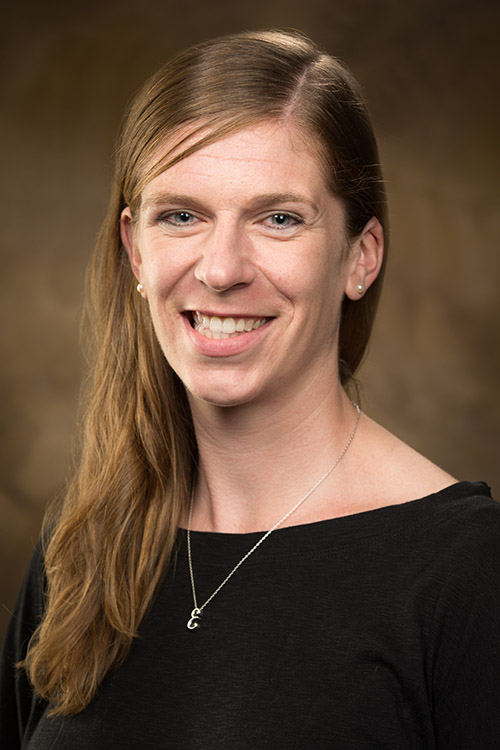Research shows that children do better academically when they have a chance to move around during the school day. Erin Howie is taking that research a step further, looking at how long the physical activity needs to last to be the most effective.
Howie, a University of Arkansas assistant professor of exercise science, joined the faculty of the College of Education and Health Professions in August. Her research focuses on health aspects of physical activity.
Her doctoral dissertation at the University of Maryland examined exercise breaks in elementary schools and the effect they have on children's cognition and behavior.
"We looked at how much time is needed," she said. "Some teachers use activity breaks as short as 30 seconds to 'get the wiggles out,' they call it."
Howie's research project looked at exercise breaks of 5, 10 and 20 minutes and the educational outcomes on fourth- and fifth-graders. This was high-intensity activity such as running in place, jumping and dancing to music, the type of activity that is known to have health benefits, she said.
"Our results showed kids needed at least 10 or 20 minutes," she said. "I plan to continue that research here using accelerometers to measure physical activity."
Accelerometers are wearable fitness devices that collect data for the researchers but do not make the information readily available to the wearer because that knowledge might influence behavior, Howie explained.
Physical activity has been shown to have the most influence on younger children during the time that executive function is developing. The term refers to qualities such as staying on task, critical thinking and creativity. Howie wants to pinpoint the time of the most rapid development so that physical activity programs can be designed to take advantage of that window.
Howie, who earned a bachelor's degree in kinesiology from the University of Maryland, teaches in the U of A Department of Health, Human Performance and Recreation. She teaches an upper-level course on exercise prescriptions for healthy populations. The course is designed for students who plan to work as exercise trainers or other exercise professionals.
"These professionals have to be able to tell someone, based on goals and the individual's starting habits, what they should do to improve cardiovascular fitness, build muscle or improve flexibility," Howie said.
In the spring, she will teach the same course as it applies to people who have conditions such as cardiovascular disease and diabetes.
Contacts
Heidi S. Wells, director of communications
College of Education and Health Professions
479-575-3138,
